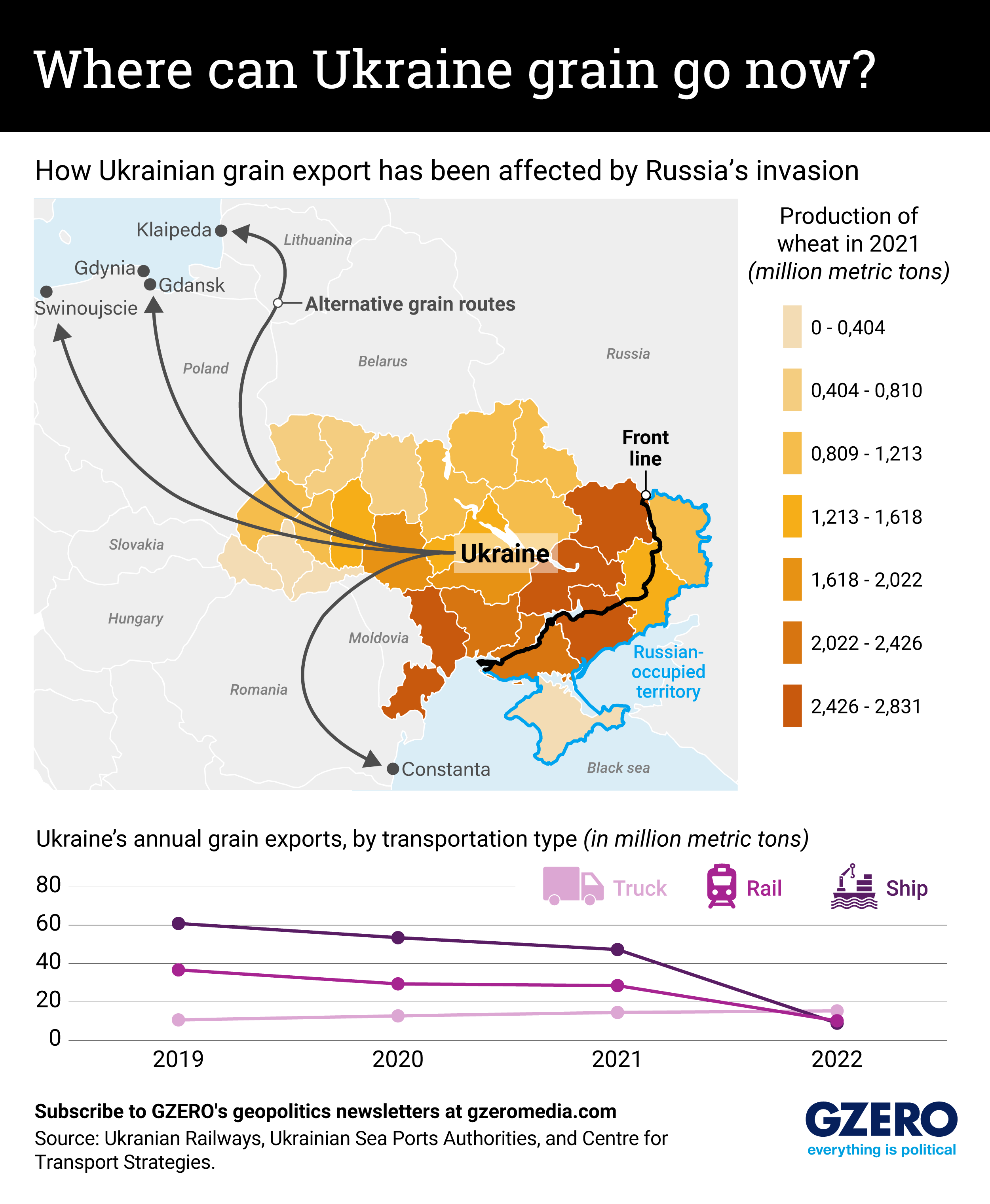July 27, 2023
Ukraine is known as the “breadbasket of Europe” thanks to the massive amounts of grain it grows and exports. But Ukrainian farmers have struggled to ship their crops since Russia’s invasion of Ukraine, and that just got a lot harder with Russia pulling out of the Black Sea grain initiative last week. Before Russia backed out, around 49% of Ukraine’s grain was shipped via the ports in Odesa protected under the deal.
Peter Ceretti, head of Eurasia Group’s geostrategy division, says the situation could worsen “if farmers decide to plant or harvest less of their land due to limited export options.” He is also concerned that factors like the destruction of the Kakhovka Dam, landmines, and Russia intensifying its attacks on Ukrainian agribusiness could further hurt exports.
Without its Black Sea ports, Ukrainian farmers have to ship their crops by rail or truck to neighboring EU countries, upping shipping costs. We look at how the war is encroaching on Ukraine’s biggest grain regions, how exports have declined since the war, and how much farther grain now must travel before it can be shipped to the rest of the world.
More For You
Hellenic coast guard performs SAR operation, following migrant's boat collision with coast guard off the Aegean island of Chios, near Mersinidi, Greece, February 4, 2026.
REUTERS/Konstantinos Anagnostou
15: The number of migrants who died after their boat accidentally collided with a Greek Coast Guard vessel in the Aegean Sea on Tuesday. Two dozen people were rescued.
Most Popular
Walmart is investing $350 billion in US manufacturing. Over two-thirds of the products Walmart buys are made, grown, or assembled in America, like healthy dried fruit from The Ugly Co. The sustainable fruit is sourced directly from fourth-generation farmers in Farmersville, California, and delivered to your neighborhood Walmart shelves. Discover how Walmart's investment is supporting communities and fueling jobs across the nation.
Workers repair a pipe at a compound of Darnytsia Thermal Power Plant which was heavily damaged by recent Russian missile and drone strikes, amid Russia's attack on Ukraine, in Kyiv, Ukraine February 4, 2026.
REUTERS/Valentyn Ogirenko
Democratic Alliance leader John Steenhuisen announced Wednesday that he will not run for a third term as leader of the liberal, pro-business party, after months of internal pressure over a host of controversies – including allegations, since cleared, that he used the party credit card for Uber Eats.
© 2025 GZERO Media. All Rights Reserved | A Eurasia Group media company.
